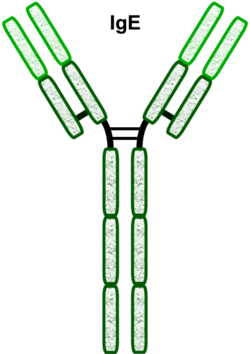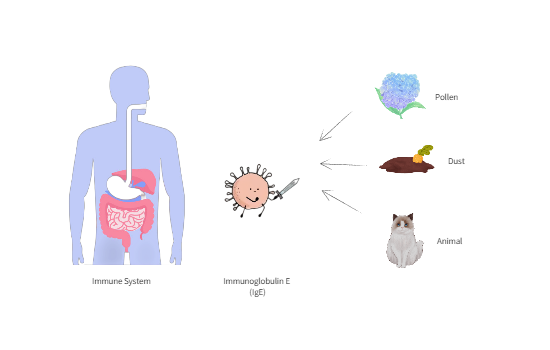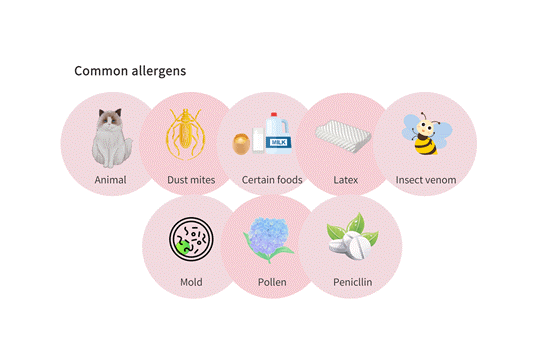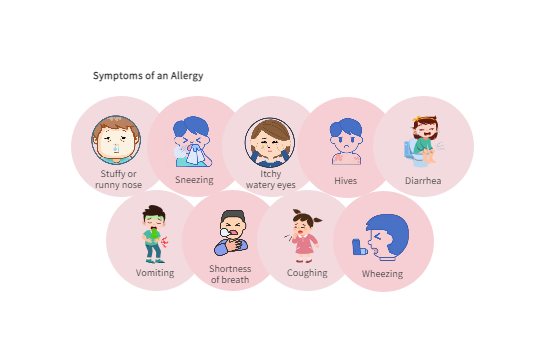A Growing Epidemic
Allergies are the 6th leading cause of chronic
illness. In 2018, 7.7 percent of adults and 7.2 percent of
children were diagnosed with hay fever. The most common serious allergic life-threatening
reactions are medicines, food, and insect stings. The annual cost of allergies
exceeds $18 billion. In 2018, 9.2 million children had skin allergies. Severe
drug reactions may affect 10 percent of the world’s population. About 4.3
percent of the general population has a latex allergy. Insect sting allergies
affect 5 percent of the population.
What Is an Allergy?
When your immune system reacts to something that’s usually harmless. Those triggers, which doctors call "allergens," can include pollen, mold, and animal dander, certain foods, or things that irritate your skin. Your immune system overreacts to an allergen by producing antibodies called Immunoglobulin E (IgE). These antibodies travel to cells that release. Immunoglobulin E (IgE) plays a critical role in the allergic inflammatory process in diseases such as allergic rhinitis. Cross-linking IgE bound to its receptor on cells by multivalent allergens initiates a chain of events resulting in allergic immune responses.

Immunoglobulin E
All you need to know about Allergy Blood Test
What is an allergy blood test?

Substances that cause an
allergic reaction are called allergens.
Common allergens that can be
detected through allergen-specific IgE testing include:

Allergy symptoms can range from
sneezing and a stuffy nose to a life-threatening complication called anaphylactic shock.
Allergy blood tests measure the amount of IgE antibodies in the blood. A small
amount of IgE antibodies is normal. A larger amount of IgE may mean you have an
allergy.
Your health care provider may
order allergy testing if you have symptoms of an allergy.
These include:

Biotime has this excellent Allergy blood testing reagent named, Total IgE Rapid Quantitative Test. Which precisely responds to generally thought of in the context of allergic disease. However, increases in the amount of circulating total serum IgE can also be found in various other diseases, including primary immunodeficiency, infections, inflammatory diseases, and malignancies. Total IgE biomarker is able to detect the sample of WB/Plasma/Serum. It provides the results with in very short time within 12 minutes also it detects the range of 1-1000IU/mL. Be sure to talk to your health care provider if you have questions about your test results and/or your allergy treatment plan.
1. Unal, D., Gelincik, A., Elitok, A., Demir, S., Olgac, M., Coskun, R., Kocaaga, M., Colakoglu, B., Buyukozturk, S. (2017). Impact of high serum Immunoglobulin E levels on the risk of atherosclerosis in humans. Asia Pacific allergy, 7(2), 74-81.
2. Brown, W. R., Borthistle, B. K., & Chen, S. T. (1975). Immunoglobulin E (IgE) and IgE-containing cells in human gastrointestinal fluids and tissues. Clinical and experimental immunology, 20(2), 227-37.
3. Bennich H., Johansson S.G.O., von Bahr-Lindström H., Karlsson T. (1976) Function and Structure of Immunoglobulin E (IgE). In: Johansson S.G.O., Strandberg K., Uvnäs B. (eds) Molecular and Biological Aspects of the Acute Allergic Reaction. Springer, Boston, MA.
4. Fifty years later: Emerging functions of IgE antibodies in host defense, immune regulation, and allergic diseases. (2016). The Journal of allergy and clinical immunology, 137(6), 1631-1645.
5. Abbas A.K and Lichtman A.H. Cellular and molecular immunology. Fifth edition. Page no.35-43.
6. Owen, J. A., Punt, J., & Stranford, S. A and Jones, P.P (2013). Kuby Immunology (7 ed.). New York: W.H. Freeman and Company.
7. Delves, P.J., Martin, S.J., Burton, D.R. and Roitt, I.M. (2011). Roitt’s Essentail Immunology. 12th edition. A John Wiley and Son’s, Ltd, Publication.
8. Cruse, J.M. and Lewis, R.E. (2010). Atlas of Immunology. Third edition. CRC Press. Taylor and Francis Group, 6000 Broken Sound Parkway NW, Suite 300, Boca Raton, FL 33487-2742.